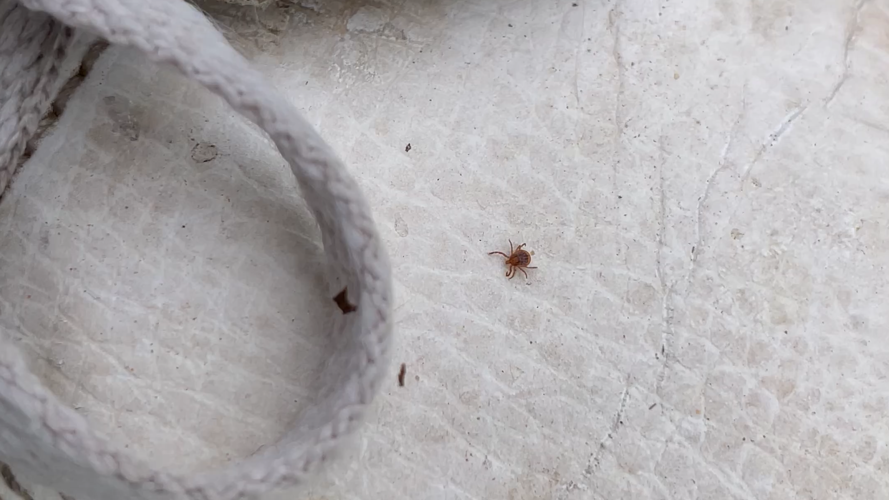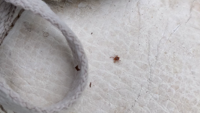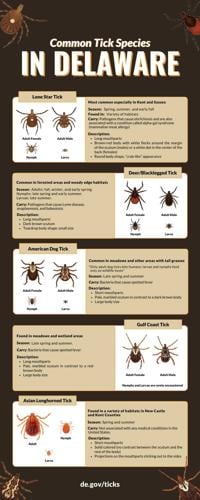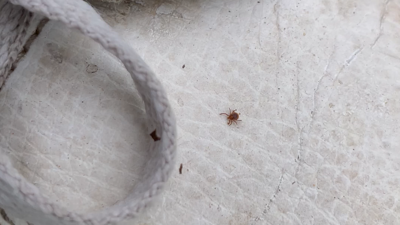DELAWARE - Warmer weather has returned and with that follows the return of insects, some of which can cause problems for people. May is Tick Awareness Month and it falls during the time of year when ticks tend to be at their worst.
Delaware is home to five different commonly found species of ticks. Each of these tick species can live in different habitats and carry different diseases.

There are 5 commonly found ticks in the state of Delaware. Courtesy: DNREC
The Lone Star tick is the most commonly found species of tick. This tick can be found in a variety of different habitats throughout the state. Lone Star ticks are the carrier of alpha-gal syndrome, which is the disease that can result in the development of a red meat allergy.
Deer ticks are commonly found in forested areas of the state. Deer ticks are the carrier of Lyme disease.
The American dog tick inhabits meadows and areas with tall grasses. Only adult American dog ticks will bite humans. The younger ticks will only feed on animals. The American dog tick can carry spotted fever.
The Gulf Coast tick is found in meadows and wetland areas. This tick can also carry spotted fever.
A lesser known tick is the Asian longhorned tick, which can be found in a variety of habitats, particularly in the northern half of the state. These ticks are not known to carry any diseases that impact people.
Ticks can be found in all outdoor areas in Delaware, but that shouldn’t be a reason to avoid going outdoors. There are precautions to take which will keep you safe when going outside.
“During tick season, the best advice I can give is to avoid the tall grass, stay on the paths, check yourself regularly,” explained Michael Valenti, the Director of Abbott’s Mill Nature Center in Milford.
It is also recommended to use insect repellent containing at least 20 percent of an active ingredient, like DEET or permethrin. Light colored clothing and shoes will also allow you to more easily identify ticks that may have crawled onto you.
If you would like to learn more about ticks in the state, be sure to check out de.gov/ticks.









